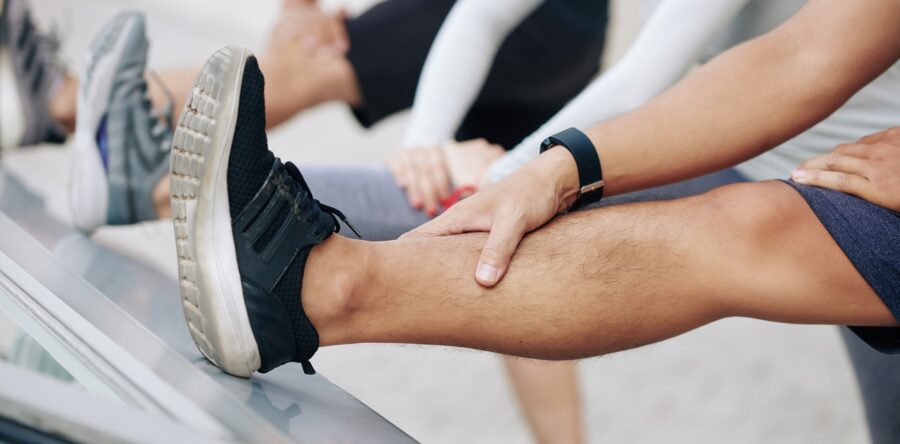Running is an immensely popular form of exercise, offering a wealth of physical and mental health benefits. It provides an unparalleled opportunity to connect with nature, build cardiovascular strength, and de-stress from the rigors of everyday life. However, as rewarding as running can be, the repetitive impact and demands it places on the body can also make runners susceptible to injuries. To minimize the risk of running injuries and maintain long-term wellness, it is important for runners to have a solid understanding of appropriate training, self-care, and injury prevention strategies.
Physiotherapy can be a vital ally in helping runners avoid common injuries, enhance performance, and ensure a lifelong love affair with the sport. At Whitehorse Physiotherapy, our skilled professionals have extensive experience working with runners of all levels, helping them develop tailored injury prevention strategies and improve their overall running experience. In this article, we will explore the many ways physiotherapy can contribute to safer, more fulfilling running endeavours, offering guidance on how to incorporate physiotherapy principles into your running routine for lasting health and optimal performance.
Whether you are a seasoned trailblazer or just beginning to embrace the joys of running, proactive injury prevention should be a top priority. Join us as we explore the world of physiotherapy for runners, delving into the invaluable tips, techniques, and insights that can keep you on the path to health, enjoyment, and personal bests on the roads, trails, and beyond. Allow us to be your guide on a journey towards a stronger, more resilient, and injury-free running experience, fostering miles of smiles and boundless energy in the beautiful outdoors.
1. Understanding Common Running Injuries and Their Causes
To effectively prevent running injuries, it is essential to understand the most common issues runners may encounter and the various factors that can contribute to them. Some prevalent running injuries include:
a. Runner's knee (patellofemoral pain syndrome): Characterized by pain around the kneecap, this issue is often caused by overuse, improper footwear, or muscle imbalances.
b. Achilles tendonitis: Inflammation of the Achilles tendon can result from excessive strain, tight calf muscles, or poor running biomechanics.
c. Plantar fasciitis: Pain and inflammation in the plantar fascia at the bottom of the foot can be triggered by tight calf muscles, inadequate arch support, or overpronation in running gait.
d. Shin splints (medial tibial stress syndrome): Often associated with sudden increases in training volume or intensity, shin splints can cause pain and tenderness along the inner edge of the tibia.
2. Physiotherapy's Role in Running Injury Prevention
Physiotherapy offers a comprehensive approach to minimizing the risk of running injuries, providing runners with valuable tools and guidance to foster optimal performance and long-term health. Key aspects of physiotherapy for running injury prevention include:
a. Biomechanical assessment: By evaluating your running gait, posture, and overall biomechanics, physiotherapists can identify potential areas of concern and address them before they lead to injury.
b. Strengthening and conditioning: Physiotherapists can develop customized exercise programs to target muscle imbalances and weaknesses that may predispose runners to injury.
c. Flexibility and mobility work: Ensuring that muscles and joints are properly flexible and mobile can reduce strain and improve overall running biomechanics.
d. Education and training guidance: Physiotherapists can educate runners on best practices for training, including appropriate warm-ups, cool-downs, and progression strategies, to minimize injury risk.
3. Tailored Exercises to Bolster Running Performance and Reduce Injury Risk
A well-rounded exercise program is crucial for runners, helping to strengthen key muscle groups and enhance overall stability and biomechanics. A physiotherapist can design a tailored exercise routine to address your specific needs, which may include components such as:
a. Core strengthening: Building a strong and stable core can provide a solid foundation for proper running posture and reduce the load on the lower body.
b. Hip and glute strengthening: Targeting these muscles can promote proper leg alignment, reducing the risk of knee and lower leg injuries.
c. Calf stretching and strengthening: Healthy, flexible calf muscles can help prevent issues like Achilles tendonitis and plantar fasciitis.
d. Joint mobility exercises: Ensuring optimal joint range of motion and flexibility can help protect runners from excess strain and injury.
4. Good Running Habits and Self-Care for Injury Prevention
In addition to physiotherapy interventions, developing good running habits and engaging in proper self-care can go a long way in keeping injuries at bay. Consider incorporating the following tips into your running routine:
a. Invest in proper footwear: Select running shoes that offer appropriate support and fit for your foot type and running style.
b. Gradually progress your training: Avoid sudden increases in training volume or intensity, and adhere to the 10% rule by not increasing weekly mileage more than 10% per week.
c. Prioritize rest and recovery: Give your body sufficient time to recover between runs, and be mindful of excessive fatigue or persistent aches that may signal overtraining.
d. Listen to your body: Pay attention to any discomfort or pain you may feel, and consult your physiotherapist or healthcare provider when needed.
Embrace Physiotherapy for a Rewarding and Sustainable Running Journey
Running should be a source of joy, vitality, and personal achievement, not a trigger for chronic pain or injury. By bridging the benefits of physiotherapy with a proactive approach to running, you can lay a robust foundation for resilience, strength, and lifelong enjoyment of the sport. Trust in the expertise of Whitehorse Physiotherapy's skilled professionals to guide you on your path to injury-free running, helping you build a healthier, more balanced relationship with movement that will propel you to new heights of personal wellness and satisfaction.
Don't let the risk of injury hinder your passion for running. Contact Whitehorse Physiotherapy today to schedule an appointment with a sports physiotherapist, and discover the many ways our team can help you overcome obstacles, excel in your running endeavours, and embrace the exhilarating freedom of the open road.





